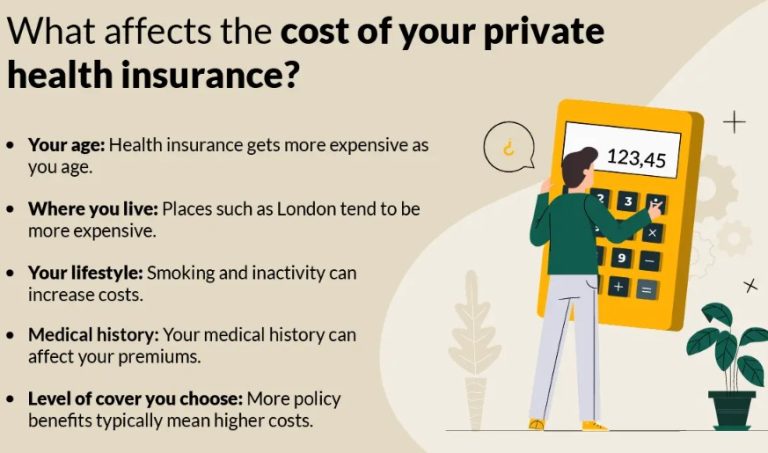How Do You Know If a Diet is a Fad Or a Lifestyle Diet
How Do You Know If a Diet is a Fad Or a Lifestyle Diet? A diet is a fad if it promises quick fixes and lacks long-term sustainability. A lifestyle diet focuses on balanced, healthy eating habits.
Choosing the right diet can be confusing. Fad diets often promise rapid weight loss through extreme measures, which are usually not sustainable. These diets can lead to nutritional deficiencies and other health issues. In contrast, lifestyle diets emphasize long-term health and well-being.
They incorporate balanced nutrition, regular exercise, and mindful eating. Lifestyle diets are easier to maintain and offer lasting health benefits. Recognizing the difference between a fad and a lifestyle diet can help you make informed choices for your health. This understanding ensures you adopt habits that support long-term wellness and prevent diet-related pitfalls.
Defining Fad Diets
Fad diets often promise quick weight loss. They usually have strict rules and limited food choices. Many fad diets lack scientific evidence. They can be hard to stick to long-term. Often, they focus on one type of food or nutrient. Fad diets might exclude essential nutrients.
The Cabbage Soup Diet is a popular fad diet. The Atkins Diet limits carbohydrates. The Grapefruit Diet requires eating grapefruit with every meal. The Juice Cleanse involves drinking only juices. The Paleo Diet restricts grains and dairy. The Ketogenic Diet is very high in fats.
Identifying Lifestyle Diets
Lifestyle diets focus on long-term health. They include balanced nutrients. These diets are flexible and adaptable. They do not promote quick fixes. They encourage sustainable habits. Whole foods are a big part of these diets.
The Mediterranean diet is a lifestyle choice. It emphasizes fruits, vegetables, and whole grains. The DASH diet is another example. It targets heart health with balanced meals. The Flexitarian diet is also popular. It allows occasional meat consumption but focuses on plant-based foods.
Short-term Vs. Long-term Goals
Fad diets promise quick weight loss. These diets often require extreme calorie cuts. The results might be seen in days or weeks. But, these diets are hard to maintain. Most people regain weight after stopping the diet.
Lifestyle diets focus on healthy habits. These habits include balanced meals and regular exercise. The goal is to make changes that last a lifetime. People on lifestyle diets lose weight slowly. This slow weight loss is more stable and lasting.
Nutritional Balance
A balanced diet includes all essential nutrients. These nutrients are carbohydrates, proteins, fats, vitamins, and minerals. Each nutrient plays a key role in keeping the body healthy. Carbohydrates give you energy. Proteins help build and repair tissues. Fats support cell growth. Vitamins and minerals boost the immune system. A good diet will include all these nutrients.
A lifestyle diet includes a wide variety of food groups. Eating different foods ensures you get all necessary nutrients. Include fruits, vegetables, grains, proteins, and dairy in your meals. Each food group provides different benefits. For example, fruits and vegetables are rich in vitamins. Grains give you energy. Proteins help build muscles. Dairy products are good for bones. A varied diet is key for good health.
Scientific Backing
Research studies help identify the effectiveness of diets. Studies show long-term benefits for lifestyle diets. Fad diets often lack scientific evidence. Long-term research provides reliable data. Peer-reviewed journals are credible sources. Always check if studies are well-conducted.
Experts give insights based on scientific knowledge. Nutritionists support balanced diets for health. Fad diets are often criticized by health professionals. Doctors recommend diets with nutritional value. Registered dietitians provide reliable advice. Trust experts with years of experience.
Psychological Impact
Identifying a fad diet involves recognizing extreme restrictions and unsustainable practices. Lifestyle diets typically emphasize balanced nutrition and long-term habits. Understanding these differences can impact your mental and physical well-being.
Mental Health
A fad diet often leads to stress and anxiety. People may worry about strict rules. They feel guilty if they break them. Lifestyle diets, on the other hand, promote a positive mindset. They focus on balance and well-being. This helps in maintaining mental peace and happiness.
Behavioral Changes
Fad diets cause drastic changes in eating habits. People might skip meals or overeat. This leads to unhealthy patterns. Lifestyle diets encourage gradual changes. They aim for long-term success. People learn to make better food choices. They develop healthy habits that last. This creates a sustainable lifestyle.
Community And Support
Support groups can help you stay on track. People in these groups share tips and motivation. They understand your struggles and celebrate your successes. This makes it easier to stick to your diet plan. Group members often share recipes and meal ideas. You can ask questions and get advice from others. These groups can be found online or in person.
Social media can be a powerful tool for your diet. Many people share their diet journey online. You can follow them for tips and inspiration. Influencers often post about their meals and workouts. This can give you new ideas for your own plan. Be cautious, as not all advice is trustworthy. Always check facts before trying something new.
Evaluating Claims
Many diets use fancy terms to attract people. They promise quick results and easy weight loss. Some use celebrity endorsements to gain trust. They might offer special foods or supplements. These tactics make the diet seem magical. Be cautious of diets that sound too good to be true.
Check if the diet has scientific backing. Look for studies and research supporting the claims. Real lifestyle diets have long-term benefits. They are based on balanced nutrition. Ask if health experts recommend the diet. Reliable diets do not promise quick fixes.
Conclusion
Deciphering a diet’s authenticity involves careful consideration. Focus on sustainability, balanced nutrition, and long-term benefits. Avoid quick-fix promises and extreme restrictions.
A genuine lifestyle diet supports overall well-being and is adaptable. Always prioritize health and consult professionals when needed. Making informed choices ensures lasting, positive changes.







